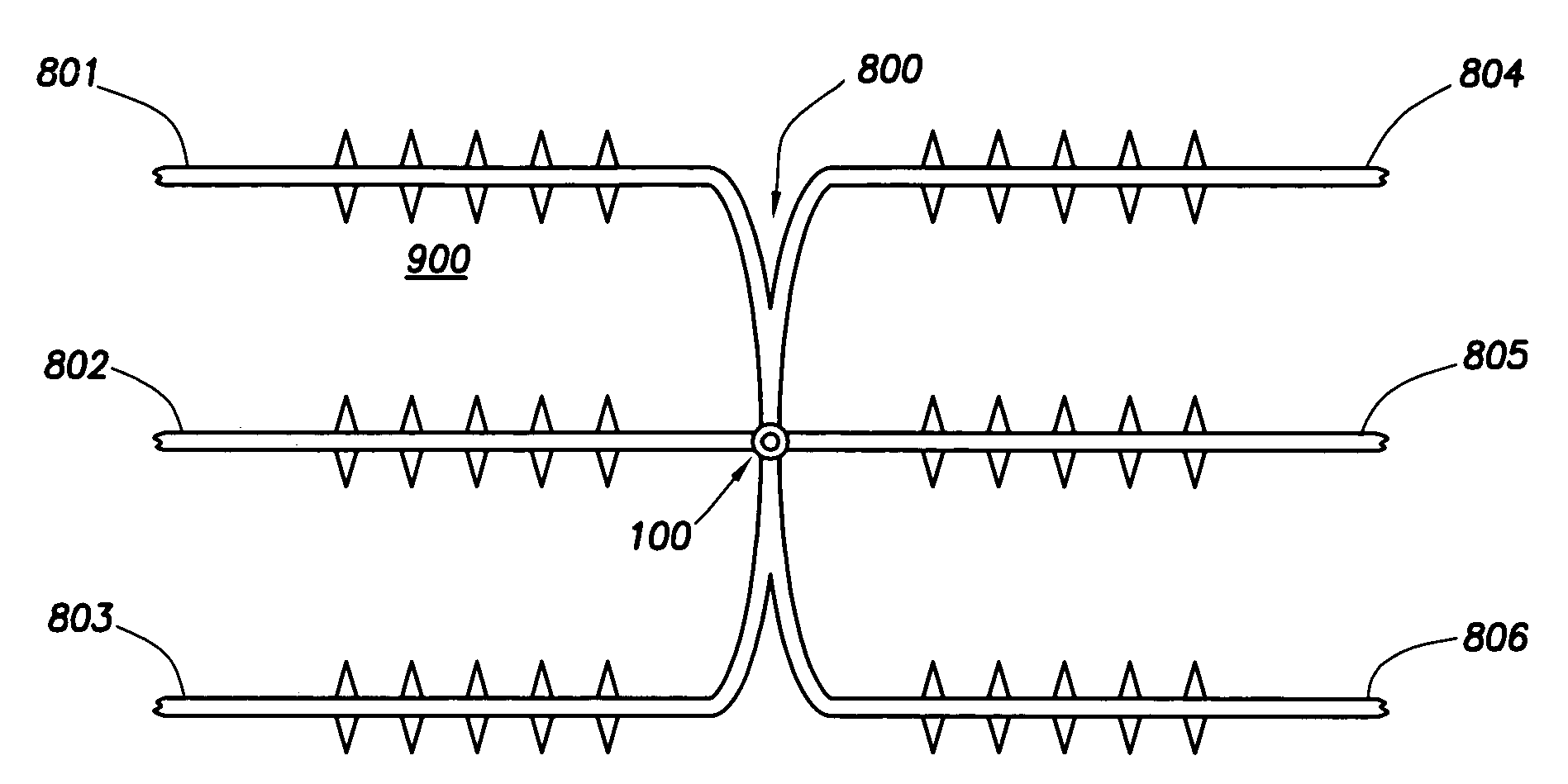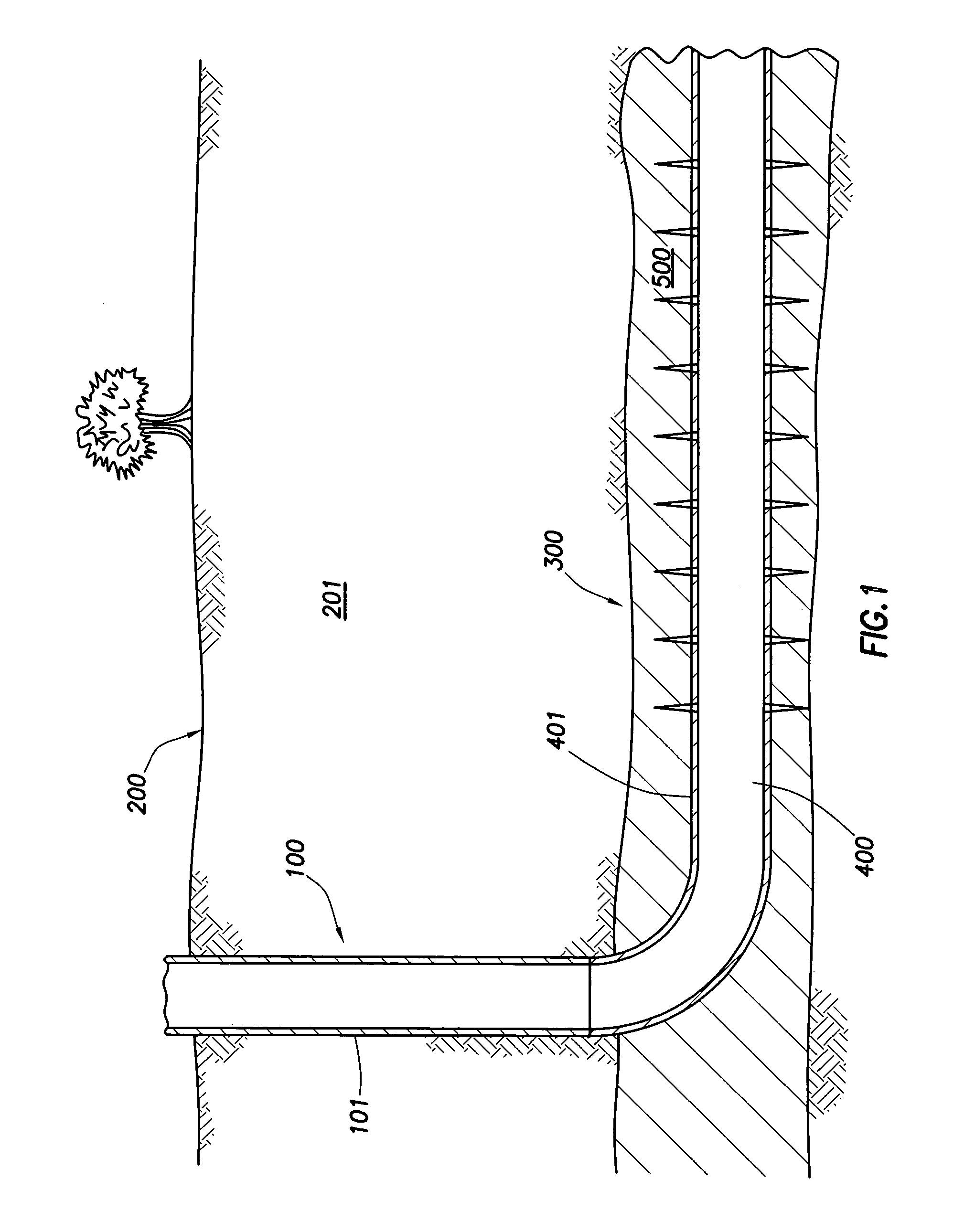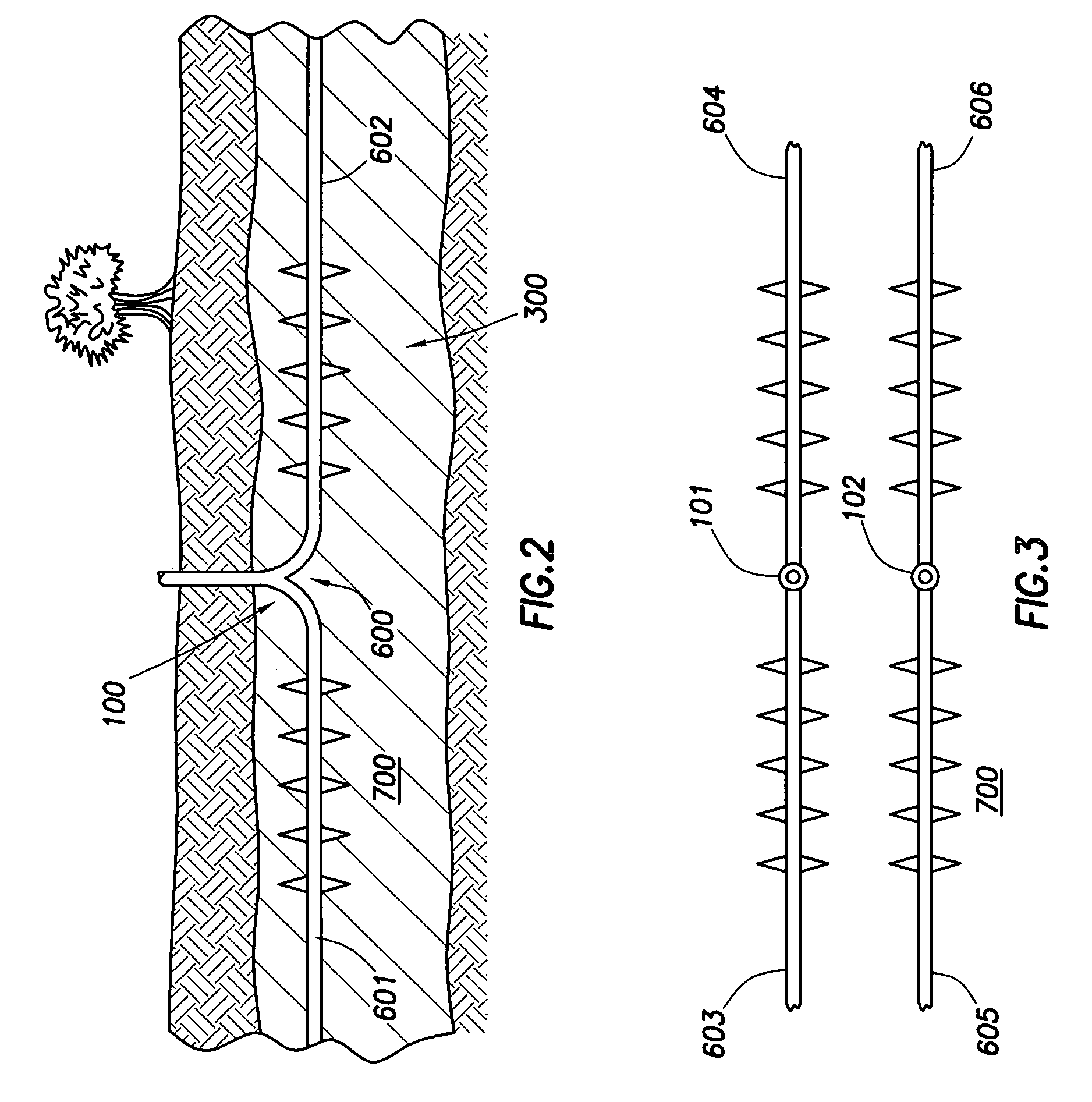Method of optimizing production of gas from subterranean formations
a technology of subterranean formations and production methods, applied in the direction of survey, borehole/well accessories, artificial islands, etc., can solve the problems of limiting the applicability of prior art horizontal well systems, affecting the production efficiency of gas, so as to maximize the interference between fractures, enhance the production of gas, and maximize the interference
- Summary
- Abstract
- Description
- Claims
- Application Information
AI Technical Summary
Benefits of technology
Problems solved by technology
Method used
Image
Examples
Embodiment Construction
[0027]The present invention relates generally to subterranean well construction, and more particularly, to improved methods for producing gas from subterranean formations that include coal seams. FIG. 1 depicts initial steps of an exemplary embodiment of the present invention. At least one substantially vertical well is drilled into a subterranean formation such that the at least one substantially vertical well bore intersects with one or more coal seams. An exemplary substantially vertical well bore 100, shown in FIG. 1, is drilled from the surface 200 through subterranean formation 201 using prior art techniques. Subterranean formation 201 includes coal seam 300, which is the source of a gas. The number of substantially vertical well bores necessary to maximize gas production will depend on several factors, including, but not limited to, the characteristics and limitations of the site, subterranean formation, and coal seam. In particular, the permeability of the subterranean forma...
PUM
 Login to View More
Login to View More Abstract
Description
Claims
Application Information
 Login to View More
Login to View More - R&D
- Intellectual Property
- Life Sciences
- Materials
- Tech Scout
- Unparalleled Data Quality
- Higher Quality Content
- 60% Fewer Hallucinations
Browse by: Latest US Patents, China's latest patents, Technical Efficacy Thesaurus, Application Domain, Technology Topic, Popular Technical Reports.
© 2025 PatSnap. All rights reserved.Legal|Privacy policy|Modern Slavery Act Transparency Statement|Sitemap|About US| Contact US: help@patsnap.com



